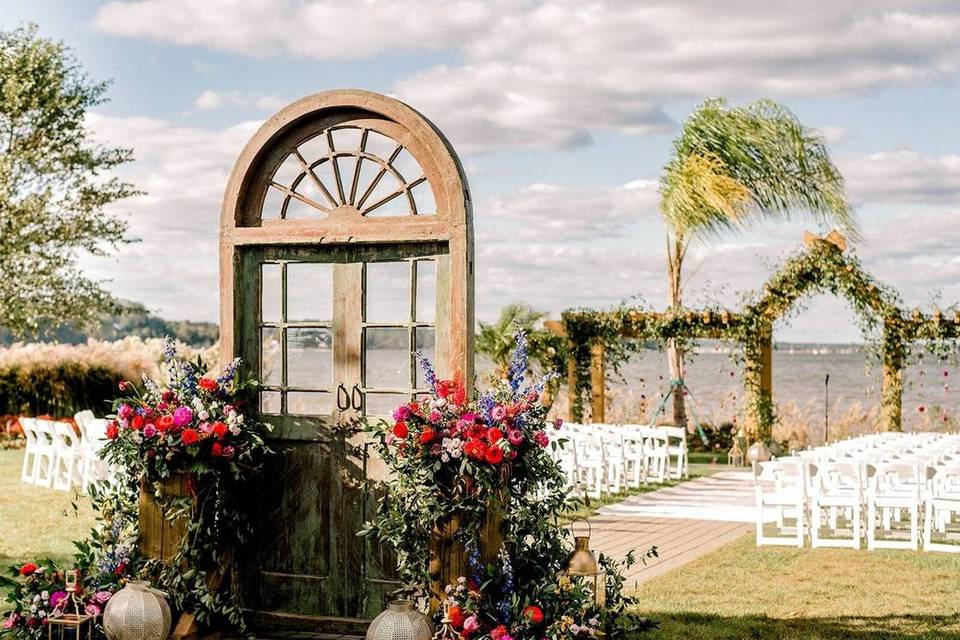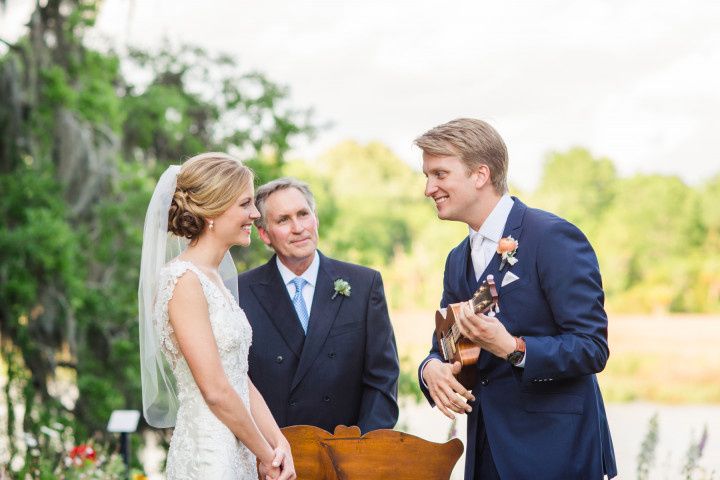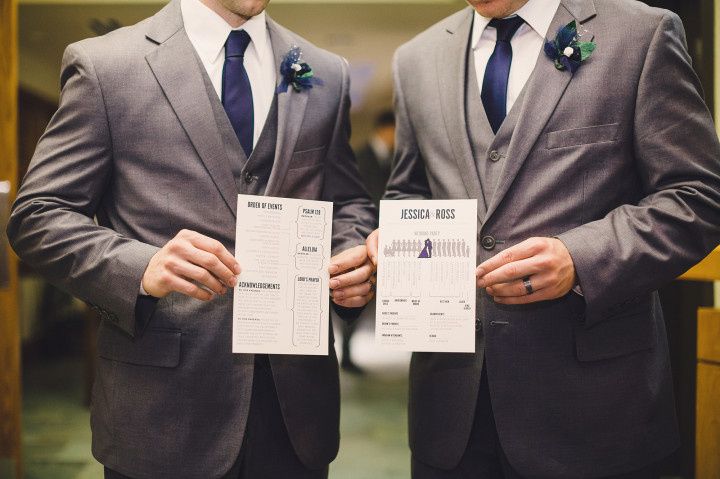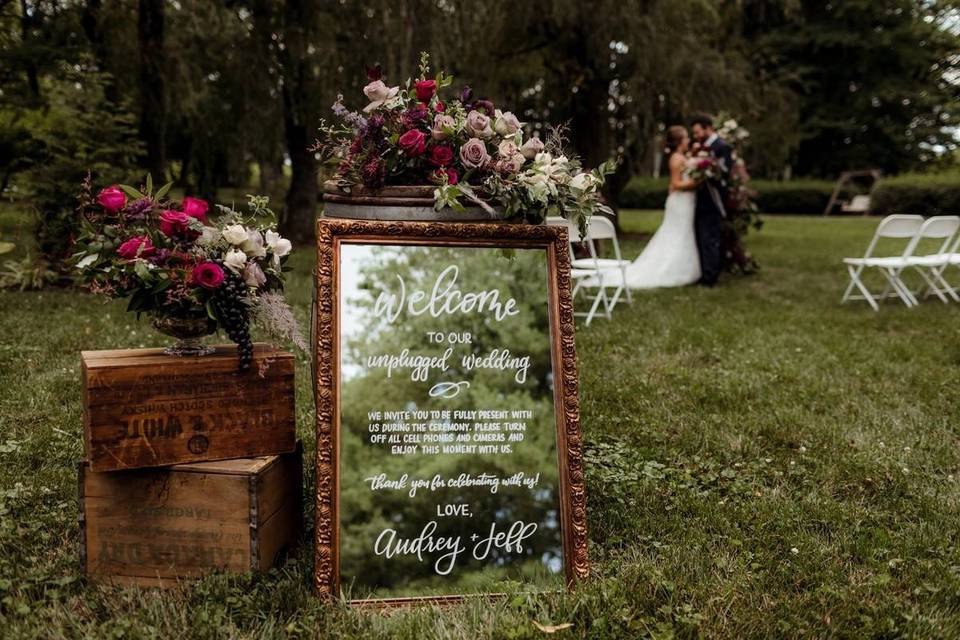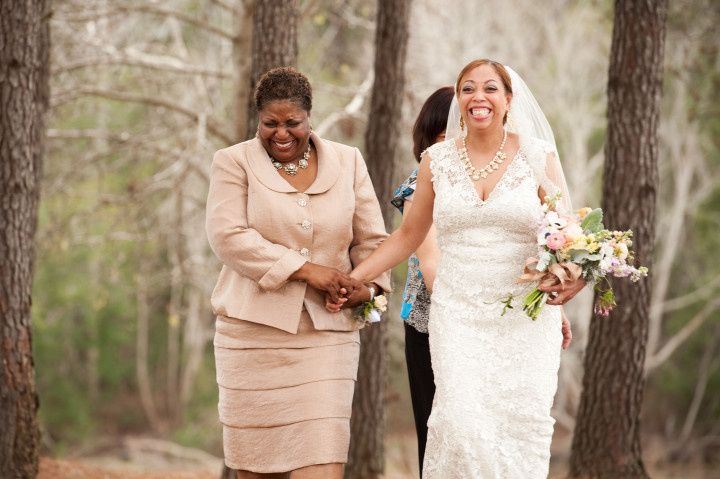7 Things You Might Not Know About Planning Your Wedding Ceremony
Planning a wedding ceremony isn't as simple as just hiring a wedding officiant. Here's how to make sure your ceremony is memorable for all the right reasons.
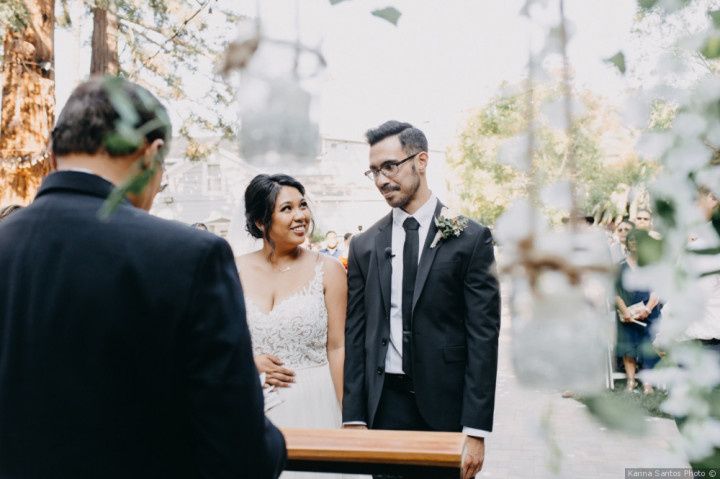
With so many things to think about in preparation for your big day, it can be hard to devote the proper amount of time and energy to each and every thing. But one area that shouldn’t fall short of your attention is planning your wedding ceremony. Even if you and your partner aren’t the most religious couple—or even if you’re not religious at all—the wedding ceremony itself serves as the foundation of your wedding celebration. In other words, it’s why everyone you love has come together: to witness the marriage of you and the love of your life.
There are many moving parts involved in planning a wedding ceremony, however, oftentimes couples only focus on finding an officiant and do not realize how many other considerations and decisions will have to be made about this important part of their wedding day, explains Taryn Blake of Taryn Blake Events in York, Pennsylvania. “Whether working with a pastor from their church, hiring a professional officiant or choosing to have a friend officiate the ceremony, couples should be prepared to personalize and provide input on a variety of items,” she says.
Here are some things you should know about planning your wedding ceremony that you might not realize until it’s too late, according to experts.
You don't have to write your own vows.
This is completely a personal preference and can be special however you choose to do it. “You can, of course, write and read your own vows, but you can also research and find sample vows that you and your partner choose that are right for you,” says Karla Firestone of Marry Me Karla in Boston, Massachusetts. “If you are not comfortable speaking in public, your officiant can ask you to hold hands and repeat after him or her—this does not, in any way, diminish your vows.”
Consider your officiant choice wisely.
There are a lot of benefits that come along with choosing an officiant who does this for a living. “If you are going to invite a friend or relative to officiate your ceremony, understand that you are asking a huge favor of them!” says JP Reynolds, an officiant of non-denominational, interfaith, cross-cultural and same-sex wedding ceremonies in Los Angeles, California. “I’ve coached scores of guest officiants and every one told me that they were honored when first asked and only later realized they hadn’t a clue as to what they were supposed to do!”
Plan who will be part of your ceremony in advance.
Who is walking, standing, sitting and where? Blake suggests that couple know this in advance so they can plan and be prepared for rehearsal. “To plan, you can talk to their officiant and planner for what works best at their venue, and decide if they prefer traditional processionals or a more modern approach,” she says. “There are so many instances where we'll arrive at the rehearsal, and the couple hasn't thought about how their wedding party is getting down the aisle!” However you choose to run your processional is truly up to you, as there is no “standard” in the modern age. “While in some venues, like a church, tend to skew more on the traditional side, in outdoor or non-religious venues the sky's the limit for possibilities!” she adds.
You should give the ceremony preparation process the time it deserves.
If you’re going to cut corners in terms of planning, don’t let your ceremony be what falls to the wayside. Firestone suggests giving yourself plenty of time to plan your wedding ceremony. “Meet with your officiant, and let her or him get to know both of you and share your love story,” she says. “Give it the time it deserves and don’t stop creating until both of you say ‘This is perfect and exactly what we want!’”
Be aware of your state’s rules and guidelines.
Each state has specific rules for applying for a marriage license, so be sure to know what yours are—and remember it’s not the state you live in; it’s the state you’re getting married in that counts. “Each state has definite and specific rules that must be followed, for example, if you are applying for a marriage license in Rhode Island, you must have two witnesses sign the marriage license,” says Firestone. “Also, it is the officiant’s responsibility to file the marriage license after the ceremony within a certain time frame (often 72 hours) where the application was originally filed.”
Have a good understanding of timing.
How long your wedding ceremony will run will have a lot to do with the timing of the rest of your day’s events, such as your cocktail hour, receiving line and reception. “If family formals are being taken after the ceremony, couples should ask those important family members to stay put so the photographer can quickly begin post-ceremony,” says Blake. “If guests aren't aware of the need to stay, there's a chance they are in the car before anyone can catch them!”
Know that your name won’t be changed automatically.
Changing your name is a process in itself and is something you can choose to do after your wedding day has come and gone. You’ll have to notify your name change to the Social Security Office, Department of Motor Vehicles, your credit card companies, your place of employment, your bank, etc. For this reason, Firestone suggests that couples purchase at least two official marriage licenses from the town or city in which they applied for their license. “Some places require an original, raised seal copy of the marriage license so it’s important to have it available,” she says.

